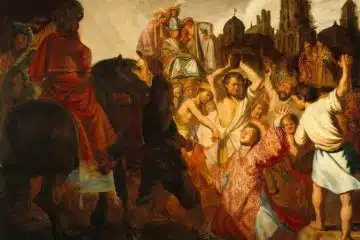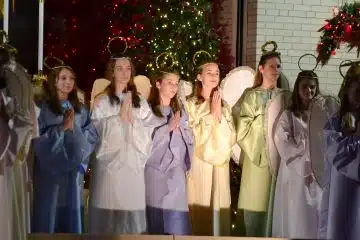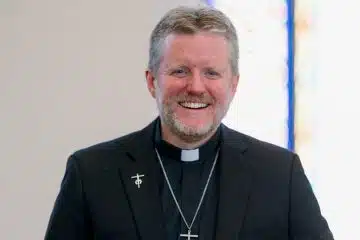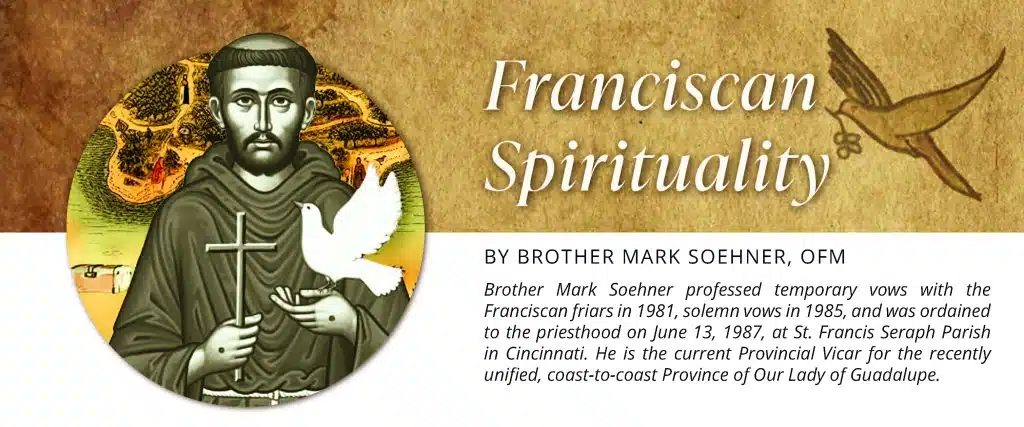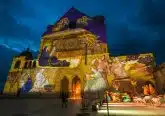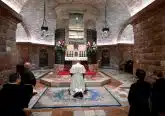Catholic Spirituality: Franciscans
Franciscan Spirituality flows from the experience of a single man, St. Francis of Assisi (1181-1226). Son of cloth merchant Pietro Bernardone, St. Francis went from fighting for the values of wealth and fame to feeling contempt for those same values. After suffering for a year in an open pit prison from fear, cold, hunger and battle trauma, he emerged a changed man. Numerous transformational experiences over the next years molded him into the saint he is, and key themes arose from his life experiences that influence Franciscans to this very day.
First: A primacy for prayer. St. Francis heard Jesus’ voice from the San Damiano Crucifix say, “Go, repair my church, which as you can see is in ruins.” He experienced Christ fully in the Catholic Church, even though he recognized how bruised and broken the Church was. He and his brothers (in Latin, friars) regularly prayed the Office together and participated in Mass at various churches in the fields where they worked as day laborers. Here, Jesus continued to “come down upon the altar.” Here, “[Jesus] puts himself into (the priest’s) hands, and we touch Him daily with our mouth.” St. Francis reminded the friars: “Look, brothers, at the humility of God and pour out your hearts before Him.” “Hold back nothing of yourselves for yourselves, so that He Who gives Himself totally to you, may receive you totally.” These words demonstrate St. Francis’ passion for the Eucharist, the Church and that central relationship with Jesus Christ.
Second: An astonishment for God’s love. St. Francis sought solitary places to spend long hours in prayer, where he met the humble Christ. Jesus’ Incarnation as a “Bethlehem Babe” held a prominent place. That God desired to love us so much to become one of us, in our human flesh, always astounded St. Francis. He wanted to demonstrate this great love. In 1223 in Greccio, where the peoples’ hearts had grown cold, he reconstructed the manger scene in a cave with barn animals. In this spot, during the Christmas Mass, people saw in St. Francis’ arms what seemed like a lifeless baby awaken from a deep sleep—the whole village went home singing!
Third: An appreciation for Creation. Franciscans see that as God became flesh for us in Jesus—all of God’s creation reflects the magnificence of God. In his Canticle of the Creatures, St. Francis praises God through the “creatures,” understanding them as brother or sister. His love for nature was expressed with deep familial connection.
Fourth: A recognition of Jesus’ humility. In the Eucharist, the Christmas crib and all of creation, St. Francis noticed the humility of God in Jesus. The hands that once held moon and stars grasped Mary’s little finger and would stoop to wash our feet. As Franciscans, we fall in love with this humble God and stop our ambition to be among the clever.
Fifth: Jesus in the suffering. St. Francis encountered this Jesus in a poor beggar in Rome with whom he exchanged his clothes and in the leper he embraced. Sometimes, we try to find God in an antiseptic church, and we trip over God lying on the church steps or in the pain in our lives. St. Francis discovered God in his own poverty, his woundedness, and he taught us what to do with our pain. Rather than passing it along, the worst pain can become a sacred wound, a gate of heaven, when we learn to embrace it with Christ, touch it to His wounds.
The Franciscan friars, sisters and seculars continue looking to the needs of those on society’s periphery. Historically, we have cared for people whom the world despises: families living below the poverty line, the homeless, the mentally ill. We are psychologists, scholars, lawyers, teachers and any profession—even priests! While some have spent time in hermitages for deeper prayer, we live in fraternities, where we daily pray and cook together and invite others to join with us, as a family would. We are bound together by vows of poverty, chastity and obedience. We listen for the Spirit, especially with a view towards those who struggle on the edge of our world.







